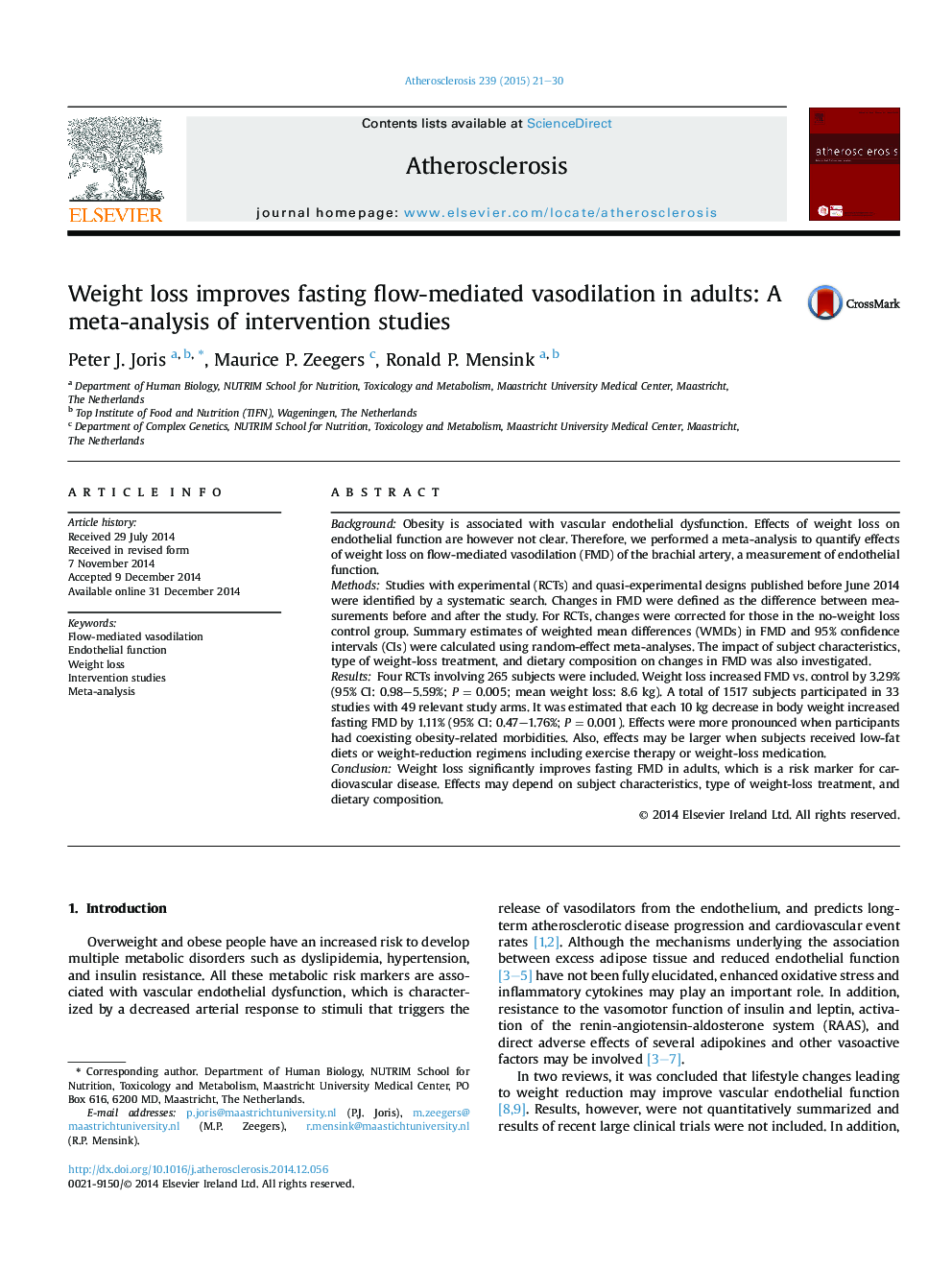| کد مقاله | کد نشریه | سال انتشار | مقاله انگلیسی | نسخه تمام متن |
|---|---|---|---|---|
| 5944953 | 1172347 | 2015 | 10 صفحه PDF | دانلود رایگان |
- Fasting flow-mediated vasodilation (FMD) is a risk marker for future CVD.
- We performed a meta-analysis to quantify the effects of weight loss on fasting FMD.
- Each 10Â kg decrease in body weight increases fasting FMD by 1.11% in adults.
- Effects were larger when participants had coexisting obesity-related morbidities.
- Results may depend on the type of weight-loss treatment and dietary composition.
BackgroundObesity is associated with vascular endothelial dysfunction. Effects of weight loss on endothelial function are however not clear. Therefore, we performed a meta-analysis to quantify effects of weight loss on flow-mediated vasodilation (FMD) of the brachial artery, a measurement of endothelial function.MethodsStudies with experimental (RCTs) and quasi-experimental designs published before June 2014 were identified by a systematic search. Changes in FMD were defined as the difference between measurements before and after the study. For RCTs, changes were corrected for those in the no-weight loss control group. Summary estimates of weighted mean differences (WMDs) in FMD and 95% confidence intervals (CIs) were calculated using random-effect meta-analyses. The impact of subject characteristics, type of weight-loss treatment, and dietary composition on changes in FMD was also investigated.ResultsFour RCTs involving 265 subjects were included. Weight loss increased FMD vs. control by 3.29% (95% CI: 0.98-5.59%; PÂ =Â 0.005; mean weight loss: 8.6Â kg). A total of 1517 subjects participated in 33 studies with 49 relevant study arms. It was estimated that each 10Â kg decrease in body weight increased fasting FMD by 1.11% (95% CI: 0.47-1.76%; PÂ =Â 0.001). Effects were more pronounced when participants had coexisting obesity-related morbidities. Also, effects may be larger when subjects received low-fat diets or weight-reduction regimens including exercise therapy or weight-loss medication.ConclusionWeight loss significantly improves fasting FMD in adults, which is a risk marker for cardiovascular disease. Effects may depend on subject characteristics, type of weight-loss treatment, and dietary composition.
Journal: Atherosclerosis - Volume 239, Issue 1, March 2015, Pages 21-30
